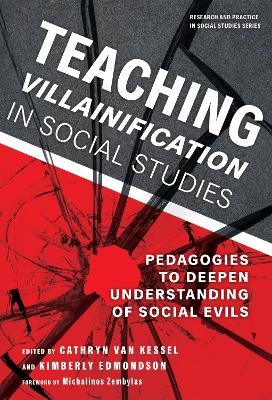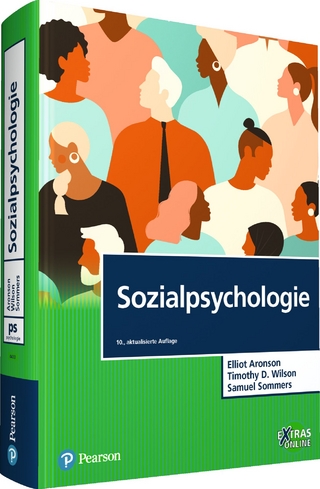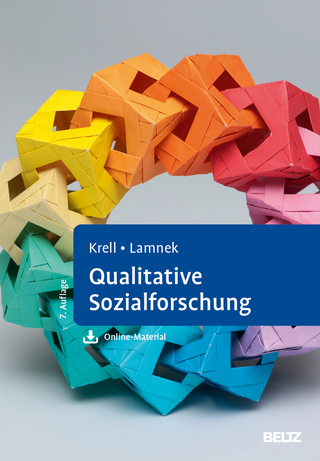
Teaching Villainification in Social Studies
Teachers' College Press (Verlag)
978-0-8077-6968-3 (ISBN)
- Lieferbar (Termin unbekannt)
- Versandkostenfrei innerhalb Deutschlands
- Auch auf Rechnung
- Verfügbarkeit in der Filiale vor Ort prüfen
- Artikel merken
In this collection, scholars from the United States, Canada, and Australia examine the concepts of villainification and anti-villainification in social studies curriculum, popular culture, as well as within sociocultural contexts and their implications. Villainification is the process of identifying an individual or a small group of individuals as the sole source of a larger evil. Anti-villainification considers the messy space in between individual and group culpability in order to help students develop a sense of responsibility to each other as humans in communities on this planet. Chapter authors examine topics related to U.S. politics, financial education, Holocaust education, difficult histories, apocalypse fiction, the Marvel Cinematic Universe, technology use, LGBTQ school experiences, rape culture, geographies of invasion, and the female body. Taken together, these inquiries into villainification offer thoughtful and powerful insights for teaching about historical wrongdoing in more nuanced ways, addressing the responsibility we all have to create a better world.Book Features:
Pushes the field of social studies to develop a more nuanced understanding of the villains of the past and present.
Invites educators to become more thoughtful about not only curriculum but also the world around us.
Helps readers to more deeply understand how easily forms of banal evil can touch our lives within and beyond the classroom, and what we might do about it.
Examines how systemic forces can influence "average" individuals to cause or contribute to great societal harm.
Includes teacher-friendly engagements with theory, using examples from middle and high school classrooms.
Offers a wide range of contexts related to social studies education, including civics, economics, geography, and history.
Cathryn van Kessel is an associate professor of curriculum studies at Texas Christian University and a former secondary social studies and Latin teacher from Canada. Kimberly Edmondson is a doctoral student in the Faculty of Education at the University of Alberta and a high school social studies teacher in Alberta, Canada.
Contents
Foreword: The Problem of Villainification Michalinos Zembylas vii
Acknowledgments xi
Introduction 1
Cathryn van Kessel and Kimberly Edmondson
PART I: VILLAINIFICATION AND SOCIAL STUDIES CURRICULUM
1. Heroification, Villainification, and Political Polarization: Implications for Thinking Politically About U.S. Politics 13
WayneJournell
2. "Incapable, Uninterested, and Ineffective"?: Locating Villainification Narratives in Financial Education 29
ErinC. Adams
3. Will the Real Villain Please Stand Up?: Holocaust Education and Its Hidden Transgressors 45
RebeccaC. Christ, Brandon Haas, and Oren Baruch Stier
4. Removing the Binaries in History Curricula and Teacher Education: Difficult-ishas an Antidote to Villainification and Its Partner, "Difficult Histories" 63
Brittany Jones
PART II: VILLAINIFICATION LESSONS FROM POPULAR CULTURE
5. Subverting the Villain Trope in Apocalyptic Fiction: Survivance in MoonoftheCrustedSnow 79
Kimberly Edmondson and Keri Helgren
6. "Hang On, So That Thing's a Loki Too?": Mimetic Materialities, Variants, and Villainy 95
BrettonA. Varga and ErinC. Adams
7. Wanda the Villain?: How WandaVisionCan Aid Discussions About Enslavement and Anti-Black Racism 111
Danelle Adeniji, Melissa McQueen, and Cathryn van Kessel
PART III: SOCIOCULTURAL IMPLICATIONS OF VILLAINIFICATION NARRATIVES
8. Can Technology Be Evil?: Heroes, Villains, and the Banality of Technology 127
RyanM. Smits and DanielG. Krutka
9. Identifying the Villain: Antivillainification, Social Studies, and LGBTQ Individuals 145
Heather P. Abrahamson
10. Anti-Complicity Education: Combating Supervillains and Lesser Villains in Contemporary Rape Culture 161
AmandaM.E. Thomson
11. Placial Villains: Naming, Memorial Geographies of Invasion, and the Work of Social Studies 181
Bryan Smith
12. Horses, Heretics, and Madame Déficit: The Historical Villainification of the Female Body 197
Andrew Thomson
Concluding Thoughts 213
Cathryn van Kessel and Kimberly Edmondson
About the Editors and Contributors 215
Index 219
| Erscheinungsdatum | 29.02.2024 |
|---|---|
| Reihe/Serie | Research and Practice in Social Studies Series |
| Verlagsort | New York |
| Sprache | englisch |
| Maße | 156 x 229 mm |
| Gewicht | 272 g |
| Themenwelt | Schulbuch / Wörterbuch |
| Geisteswissenschaften ► Psychologie ► Sozialpsychologie | |
| Sozialwissenschaften ► Pädagogik | |
| Sozialwissenschaften ► Soziologie | |
| ISBN-10 | 0-8077-6968-1 / 0807769681 |
| ISBN-13 | 978-0-8077-6968-3 / 9780807769683 |
| Zustand | Neuware |
| Haben Sie eine Frage zum Produkt? |
aus dem Bereich


